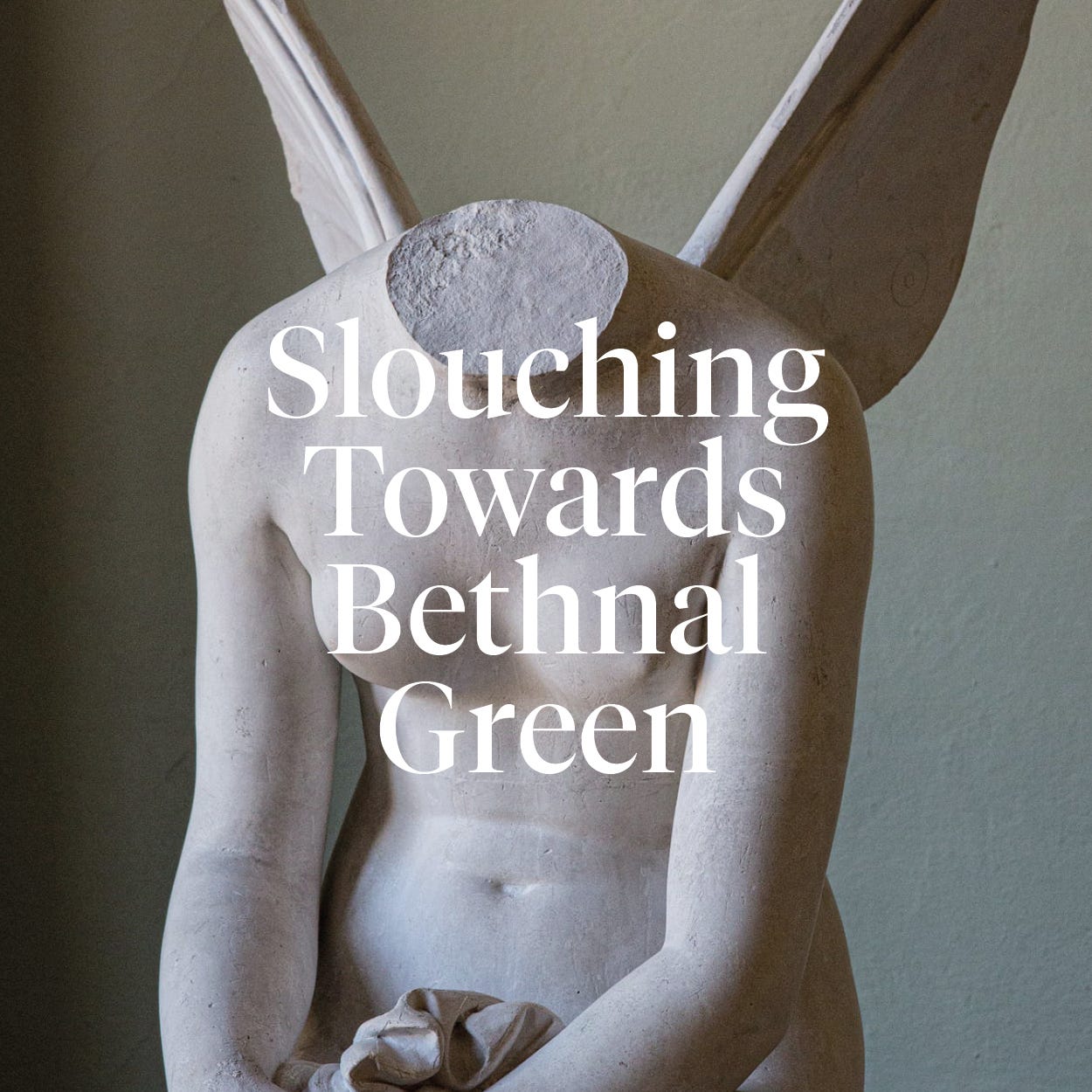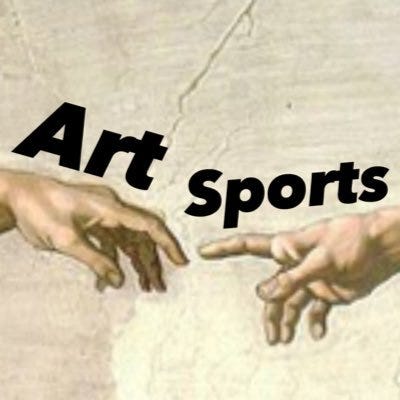Hello and welcome to another edition of Substack Reads. This week, Mike Gioia looks at threats to Hollywood’s model from new technologies, Slavoj Žižek dives into the work of crime novelist extraordinaire Patricia Highsmith, Tyler Dunne makes waves with a series on NFL head coach Sean McDermott, and Jadrian Wooten unpacks the economies of a Christmas jingle. We aim to include something here for everyone, and hope you enjoy it!
Next week, we’ll feature some of the most engaging Substack reads of all time. Got a favorite post you remember from the past year or beyond? Mention it in the comments section below (top tip: recommend a writer other than yourself!) and we’ll run a selection in next week’s roundup.
FICTION & HISTORY
Immoral and yet ethical
In his new Substack exploring philosophy, politics, and culture, Slavoj Žižek shares his love for the late great American novelist Patricia Highsmith
—
inOne often hears that, in order to understand a work of art, one needs to know its historical context. Against this historicist commonplace, the lesson of Highsmith is not only that too much of a historical context can blur the proper contact with a work of art (i.e., that, in order to enact this contact, one should abstract from the work’s context). Even more, it is, rather, the work of art itself which provides a context enabling us to properly understand a given historical situation. If, today, someone were to visit Serbia, the direct contact with raw data there would leave him confused. If, however, he were to read a couple of literary works and see a couple of representative movies, they would definitely provide the context that would enable him to locate the raw data of his experience. And the same goes for Highsmith: the task is not so much to explain her work through references to her “real” life, but, rather, to explain through the reference to her work how she was able to survive in her “real” life.
SPORTS
Let Josh be Josh
In the final installment of the tri-part exposé on the Buffalo Bills that made waves, Tyler Dunne reflects on what head coach Sean McDermott could do to save the team’s NFL season
—
inThere are two distinct versions of Josh Allen this 2023 season. One is fun. One takes off on the run—“The crowd loves it!” Al Michaels professes—and holds the football over the goal line while staring down a Tampa Bay Buccaneers cornerback. All at full speed.
This version gets a Cincinnati Bengals safety to leave his feet with a pump fake, points, laughs and runs in for a TD. Flag ’n’ fine, be damned. Meanwhile, Sean McDermott spits on the turf and purses his lips. Fifteen yards lost on a kickoff likely means more to the Buffalo Bills head coach than any momentum gained by his backyard quarterback rediscovering himself.
CULTURE & FILM
Is Hollywood going out with a whimper?
In his new Substack on the future of media, technology, and culture, filmmaker Mike Gioia considers whether Hollywood has lost its distribution power to social media and if generative AI poses the next threat to production values
—
inFor the last decade, Hollywood has been losing its grip on mainstream culture as media diets became diverse, multi-platform, and populated by items Hollywood never put on the menu. Hollywood’s own offerings increasingly resemble a Taco Bell, packaging the same few ingredients into novelty items no one remembers asking for. Recall that 2023 was the year of Fast & Furious 10, Cocaine Bear, and a fifth new Star Wars, Ahsoka.
This exhaustive Star Wars expansion (to character IP far, far, far away) comes at the tail of a 10-year period where the amount of scripted TV shows tripled from 200 to almost 600. In that same time American movies more than doubled, from around 580 to over 1,350. The result is too much stuff to watch. It’s easier to close the menu after a few pages and just order what you did last time: reruns of The Office. Or fill up on TikTok and skip a meal altogether.
ECONOMICS
The economics of Christmas music
Why aren’t musicians churning out new holiday tunes each year? Economics educator and author Jadrian Wooten explains the copyright and public domain influences at play
—
inNow, not everyone is joyfully embracing the return of these festive tunes. For many retail employees, the return of these tunes signals the beginning of the challenging holiday season. Can’t you picture it: stuck in a loop, hearing the same tunes over and over? It’s a unique holiday challenge that transforms the joy of music into a repetitive jingle hell for those on the retail front lines.
So, why aren’t musicians churning out new holiday tunes each year? While Taylor Swift has been re-recording her older albums, other artists aren’t exactly rushing to create fresh holiday melodies. Writing a hit Christmas song, it turns out, isn’t exactly a walk in a winter wonderland. For those eyeing a Christmas album, the easy money lies in the familiar. Beyond the shimmering lights and jingling bells, there’s a fascinating tale rooted in the role of copyright law and the enduring demand for nostalgia.
POETRY
“Say goodbye to her, to the Alexandria you are losing”
Susan Cain remembers the work of Greek poet Constantine Cavafy and what it can teach us about courage in the face of pain and loss
—
inSo first of all, Cavafy often wrote about ancient history and literature. Here, “Antony’’ is the Roman general Marcus Antonius; “Alexandria” probably refers to both the city and to Antony’s lover, Cleopatra; and the forsaking God is Bacchus. Cavafy was likely drawing on the classical Greek biographer and philosopher, Plutarch, who wrote that Bacchus abandoned Antony the night before Alexandria was conquered.
But what’s the poem SAYING? I believe it’s this: that Antony knew what was going to happen, before it happened; that he could see his enemies coming in a glorious, musical procession, the night before his defeat.
And the voice of the poet is telling him: don’t delude yourself, don’t tell yourself that you didn’t see what you saw, that you didn’t hear what you heard: loss is coming. You who has been “long prepared, and graced with courage,” should meet this moment as you—and as the moment itself—deserves. You should “go firmly to the window and listen with deep emotion” to the “exquisite music of that strange procession” that is coming to replace you. And you should say goodbye.
FOOD & FESTIVITIES
Baked risotto and the power of gathering
In their new Substack about home cooking and sustainable food, Fanny Singer and Greta Caruso share how to create delicious food for everyone, including exhausted hosts
—
and inWe’ve both had to let go of our old notions of how to bring people together and accept a radically different approach. The house will not be clean. The kitchen: chaotic. The food, which was once the raison d’être, is now the mechanism, the means to an end. It does not need to be perfect, or complicated, or original, it just needs to be cozy, and tasty (see below for an assist), with plenty to go around. The power of gathering, then, lies not in what’s for dinner, but in the fact of togetherness.
Greta now does Sunday dinner once a month (or tries to, at least). Fanny has loosened control and settles on making a big salad, but invites others to come with a dish. Though we love to cook a feast, potlucks can be great, too. What both of us have learned, in pushing through some of the knee-jerk resistance to conviviality that parenthood presents, is that the time we spend with friends and family around food remains absolutely precious. Not only is it energizing for us, but it feeds our kids, too—literally, of course, but also their budding selves. To be surrounded by adults and other children, a merry wilderness of bodies and voices, but also extra hands to hold and new pirate figurines to gnaw on, is to restore something of the village to our modern, more isolated lives.
So, without further ado, here is our offering for a perfect meal for said village, a wholesome, crowd-pleasing (but nonetheless green-packed) easy-peasy baked risotto version of ‘Risi e Bisi’, a beloved, cozy dish that hails from Venice. It has all of the creamy deliciousness of a classic risotto with none of the neurotic stirring.
Recently launched
Coming soon
Congratulations to the following writer celebrating publication.
To celebrate her new book, now available for pre-order,
shares a Q&A with her editor and agent:New & noteworthy
is hosting an AMA on Faith next Friday, December 22, on Substack. Subscribe to to get notified when she starts the conversation.Professionals and experts introduce themselves and connect in this thread:
Substack Politics welcomes
:Writers are bookmarking
’s interview:Inspired by the writers featured in Substack Reads? Writing on your own Substack is just a few clicks away:
Substack Reads is a weekly roundup of writing, ideas, art, and audio from the world of Substack. Posts are recommended by staff and readers, and curated and edited from Substack’s U.K. outpost by Hannah Ray.
Got a Substack post to recommend? Tell us about it in the comments.
























I’m recently new to substack, all thanks to my husband joining. He served over 21 years in the Marine Corps, retired, and found that writing is his passion. He’s amazing at it, and I’m not just saying that out of biased-ness. I’d like to nominate him to be featured, as i think there are so many more out there that would like to follow his reads. The Sword and Pen, by Aaron Courts. Give it a look!
Isn’t Substack Reads supposed to give us someone’s work to hopefully garner subscribers (and broaden our horizons)? Why would you include articles that require a subscription to read in its entirety?? This seems counterproductive to me. I was interested in the Calvafy poem and the authors take. I didn’t get to read enough to even make an opinion on whether I’d subscribe to this author. Do these writers know they are being featured? So they could drop the paywall for one article. Disappointing.